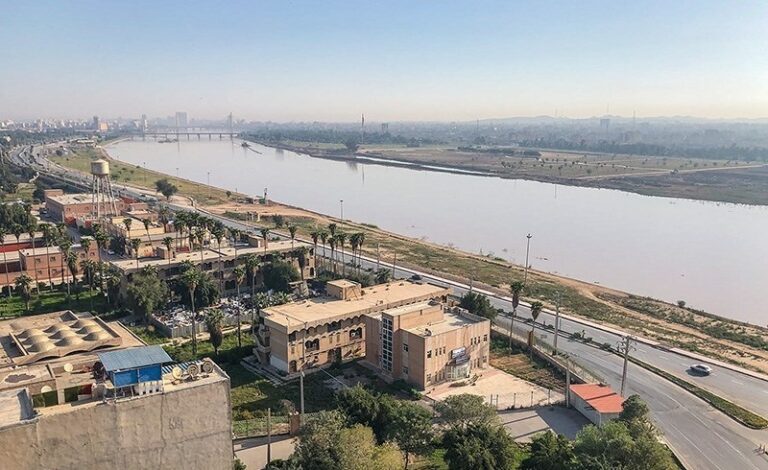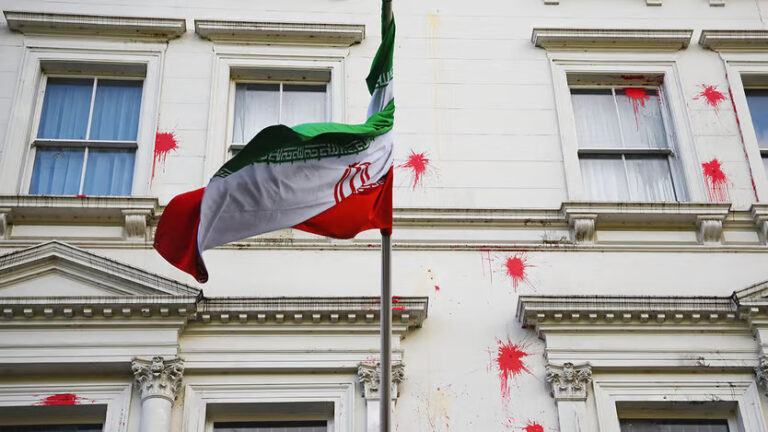Reports have emerged that around 49 members of the Ahwazi Arab minority have been arrested
since 10 January 2012, in at least three cities in the southwestern province of Khuzestan.
10 February 2012
AI Index: MDE 13/005/2012
Iran: Anniversary demonstrations on 14 February must be allowed to take place
peacefully
Amnesty International is calling on the Iranian authorities to respect freedom of assembly and
allow peaceful demonstrations in Tehran and elsewhere in Iran on 14 February 2012, amid fears
that the authorities may once again use excessive use of force to quell protests, as has happened
in previous years.
The demonstrations – called by the Coordination Council of the Green Path of Hope – mark the one
year anniversary of demonstrations called by opposition leaders Mir Hossein Mousavi and Mehdi
Karroubi, in support of the people of Egypt and Tunisia which were brutally repressed and left at
least two people dead.
Amnesty International also reiterated its call for the immediate release of Mir Hossein Mousavi and
Mehdi Karroubi, who have been held under unofficial house arrest since 10 and 14 February
2011 respectively. Mir Hossein Mousavi’s wife, Zahra Rahnavard, is also held, while Mehdi
Karroubi is currently held on his own and has been denied any contact with his family since the
day after he told his wife in December 2011 that he believed the upcoming parliamentary
elections would be fraudulent.
In its call for demonstrations, the Coordination Council of the Green Path of Hope referred to
worsening economic conditions and governmental mismanagement of Iran’s resources as a reason
why people in Iran should protest, referring to it as “the human, legal and legitimate right of
Iranians to show their protest against the state of their lives and their country”.
Amnesty International said that it was deeply concerned at increasing repression in the country in
advance of the parliamentary elections scheduled for 2 March 2012 and called for the immediate
and unconditional release of anyone held solely for the peaceful expression of their right to
freedom of expression, association or assembly or in connection with their beliefs.
A wave of arrests targeting members of Iran’s ethnic and religious minorities, journalists, and
individuals with alleged links to foreign media appears to be part of a strategy to restrict free
public debate and to warn people not to protest ahead of the elections.
Reports have emerged that around 49 members of the Ahwazi Arab minority have been arrested
since 10 January 2012, in at least three cities in the southwestern province of Khuzestan.
A family member of Nasser Derafshan Alboshokeh, aged 19, told Amnesty International how his
relative and Mohammad al-Ka’bi, aged 34, both members of the Ahwazi Arab minority, died in
Ministry of Intelligence detention facilities in Ahvaz and Shush. Both men – arrested on 26
January and 21 January respectively – were reported to have been tortured before they died.
The family of Nasser Derafshan Alboshokeh has not yet been permitted to bury him. They have
reportedly been told by the local Iranian authorities to keep the memorial service private as a
1
condition of the funeral taking place. Nasser Derafshan Alboshokeh’s family learned of his death
on 30 January 2012. He is said not to have had access to legal representation nor been permitted
any contact with his family during his four day detention.
Amnesty International is also concerned at reports of the arrest of at least 12 members of the
Baha’i religious minority in the southern city of Shiraz. During the morning of 3 February 2012,
security forces in Shiraz are said to have simultaneously entered over 30 homes belonging to
members of Iran’s Baha’i community and arrested at least 11 individuals. On the evening of 6
February, security forces arrested another Baha’i. They may all be held in Detention Centre 100
in Shiraz. There are reported to be over 80 members of the Baha’i religious minority currently
imprisoned or detained on account of their faith or identity as Baha’is.
Many writers, bloggers and social commentators have also been arrested in recent weeks. On 17
January 2012, Iranian authorities arrested the sister of an employee of BBC Persian – the BBC’s
Persian language news service – and held her in solitary confinement in Tehran’s Evin Prison.
Though she was eventually released on bail, she was forced to “confess” on camera. On 3
February, Mark Thompson, the Director General of the BBC, said that other family members of
BBC Persian staff had had their passports confiscated, preventing them from leaving the country.
In a report carried by the Mehr news agency on 7 February 2012, an unnamed source said that, “a
number of people deceived by the lie-spreading BBC Persian network” had been arrested in Iran
and accused them of having “the mission of gathering news and information, producing content in
various formats, recruiting, training and preparing for the departure of Iran’s elite media workers
from the country”. BBC Persian denied having any staff in Iran.
Previously, in January 2010, the Iranian authorities banned contact with over 60 foreign
institutions, including the BBC and some other media outlets, as well as some human rights
organizations. Anyone making contacts with these institutions is at risk of prosecution and
imprisonment – as reiterated in the 7 February 2012 Mehr article. Such a ban appears designed
to hide from the world the truth of events in Iran and to obstruct reporting from the country,
including on the human rights situation.
Amnesty International calls on the Iranian authorities to release all those detained unless they are
promptly charged with a recognizably criminal offence and tried in accordance with international
fair trial standards. From the moment of arrest, all detainees must be permitted prompt and
regular access to lawyers of their choosing, contact with their families and all necessary medical
treatment, and protected from torture or other ill treatment. Independent, impartial and
transparent investigation into all deaths in custody must be conducted, and anyone found
responsible for abuses brought to justice, without recourse to the death penalty.
The organization is also urging the Iranian authorities to ensure that all individuals are guaranteed
effective exercise of their rights to freedom of expression and assembly, both before and during
the parliamentary elections. Any investigation into alleged election-related misconduct must be
conducted in a full and transparent manner and must not be used as justification for preventing
the exercise of the right to freedom of expression, association, and assembly in the run up to and
during the elections.
Amnesty International is also concerned that the Iranian authorities may, ahead of the
parliamentary elections, execute individuals convicted of political offences who are held on death
row in part in order to instil fear and further repress dissent in Iran. An official Iranian news
agency has reported that the Supreme Court has upheld the death sentences of Zaniar (or Zanyar)
Moradi and Loghman (or Loqman) Moradi, members of Iran’s Kurdish minority. They had been
convicted of “enmity against God” (moharebeh) and “corruption on earth” for allegedly murdering
the son of a senior cleric in Marivan, Kordestan province, north-eastern Iran, on 4 July 2009. They
2
have also been convicted of participating in armed activities on behalf of Komala, a Kurdish armed
opposition group. The two were shown “confessing” on state TV to the murder, but subsequently
said their “confessions” had been made under duress after they had been tortured.
The Iranian authorities have a history of executing individuals convicted of political offences in
advance of elections, anniversaries of unrest or other times of tension. Amnesty International
opposes the death penalty unconditionally as the ultimate cruel, inhuman and degrading
punishment and violation of the right to life and is calling for all death sentences in Iran to be
commuted.
Background
In the lead-up to the February 2011 demonstrations, the authorities imposed severe restrictions
on freedom of expression, including the right to receive and impart information, by blocking
access to phone services, including SMS messages, foreign media and various internet and social
media sites.
Over the days before the rally and on the day itself, as many as 1500 arrests were reported, along
with dozens injured and two demonstrators killed and the largely peaceful demonstrations were
forcibly dispersed. Another individual was killed a week later during further protests at the
authorities’ repressive measures.
Article 19 of the International Covenant on Civil and Political Rights (ICCPR), to which Iran is a
state party, protects the right to freedom of expression. In November 2011, the UN Human
Rights Committee, which oversees implementation of the ICCPR, expressed concern about
restrictions in Iran on the rights to freedom of expression, association and assembly in its
Concluding Observations. The Committee stated that the Iranian authorities should ensure that,
“the right to freedom of assembly and association is guaranteed to all individuals without
discrimination and release immediately and unconditionally anyone held solely for the peaceful
exercise of this right”.
On 9 February 2012, the Council of Guardians announced that 3,320 out of 5,395 individuals
who registered for the 2012 elections would be permitted to stand. The Human Rights Committee
also expressed concern about the requirements for registration in election campaigns, including
the right of the Council of Guardians to reject parliamentary candidates on discriminatory grounds.
It further highlighted concerns about the conduct of the 2009 presidential election, including the
denial of access to international election monitors, the blocking of cell phone signals and access
to social networking and opposition websites, the harassment and arbitrary arrest of political
activists, members of the country’s religious and ethnic minority communities, students, trade
unionists and women’s rights activists, as well as the arrest of political opposition members in
February 2011, and the closure by court order of two pro-reform political parties. The committee
urged the Iranian authorities to reform the election law and to “take adequate steps to guarantee
that elections are conducted in a free and transparent manner, in full conformity with the
Covenant, including through the establishment of an independent electoral monitoring
commission”.
Public Document
For more information please call Amnesty International’s press office in London, UK, on +44 20
7413 5566 or email: press@amnesty.org
International Secretariat, Amnesty International, 1 Easton St., London WC1X 0DW, UK
www.amnesty.org
4











+ There are no comments
Add yours